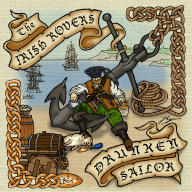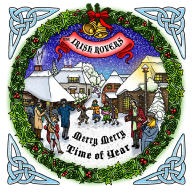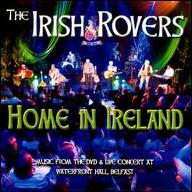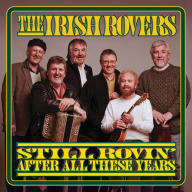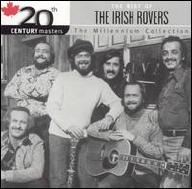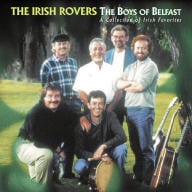After a successful engagement at a coffeehouse in Calgary where they honed their act for weeks, the group headed south to the United States, where they managed to get booked into the Purple Onion in San Francisco -- where the Kingston Trio and other renowned acts had been fixtures for years -- and then to the Ice House in Pasadena. At that time, they were a straight folk act with lots of good-time songs and between-song humor about drinking and other pleasures of the flesh. And they were popular enough at both venues to end up making a circuit of the still-vibrant folk club scene across the United States, then back to Canada, and finally a return visit to the Ice House in 1966. There, they were heard by Charles Bud Dant, an executive with the U.S. label Decca Records, who was so impressed with the group and their presentation that he not only got them signed to the label, but made the decision not to tamper with a good thing, and allow their debut album to be a live recording from the Ice House.
Their debut, The First of the Irish Rovers, was successful enough to justify a follow-up, and it was at that point that they began to run short of fully worthwhile repertory. It was Will Millar, who had hosted a children's show in Calgary, who provided them with an extra number, a children's song that had gone over well on his program. Written by Shel Silverstein, the renowned humorist, author, and singer, The Unicorn was popular on Millar's show and the group cut it as an album track and a single. The latter reached number seven on the Billboard Hot 100 in 1968, an extraordinary achievement at the time -- the mass popularity of folk music had begun receding as far back as 1965, as most of the top younger performers switched to electric instruments, and the folk-rock and psychedelic booms had done little to make the marketplace more hospitable. Yet here were the Irish Rovers, with one of the Top Ten singles in the country, and an album of the same name also selling well.
The record did bring about several changes for the group, however. Around this time, accordionist Wilcil McDowell, a friend of the bandmembers who also hailed from the Emerald Isle, joined the group to broaden the Rovers' sound. And meanwhile, although it wasn't really a children's song in the purest sense of the word, a lot of the appeal of The Unicorn was centered on younger listeners and their parents, and as their audiences grew, and large numbers of children started attending their shows, they had to cut back on the number of songs about drinking and other "ribald" subjects that would have been part of their usual set in previous years. That growth in their audience, and the abandonment of some of the repertory (and humor) that had made up their set forced the group to start seriously researching Irish folk music for new material. They were also hemmed in by the fact that they weren't a topical performing group -- they wanted to entertain rather than send messages, even in the middle of the Vietnam War and other sources of strife, especially the worsening violence over Northern Ireland (where all of the members originally hailed from). The closest they got to a "message" song was the distinctly humorous The Orange and the Green (which was adapted from the traditional tune The Rising of the Moon).
The Rovers' lineup was surprisingly stable through the years, as they rode the success of The Unicorn across the '70s and beyond. By that time, more serious and scholarly Irish folk groups such as the Chieftains had emerged internationally to steal some of the spotlight, but the Irish Rovers still had a loyal and devoted following. In 1980, they were signed to Columbia Records' Epic Affiliated Labels division, as it was called, releasing their music on the Cleveland International label -- this came with an initial name change to the Rovers, under which they had a minor country music hit with Wasn't That a Party, which rose to number 45. But protests from longtime fans of Gaelic descent forced a restoration of their original name. Since then, Will Millar retired in 1995 and cousin Joe left the group ten years later; sadly, Jimmy Ferguson passed away suddenly in 1997. Still, the group -- including both George Millar and Wilcil McDowell -- has endured, and in more recent years has recorded for its own label, Rover Records. ~ Bruce Eder, Rovi



